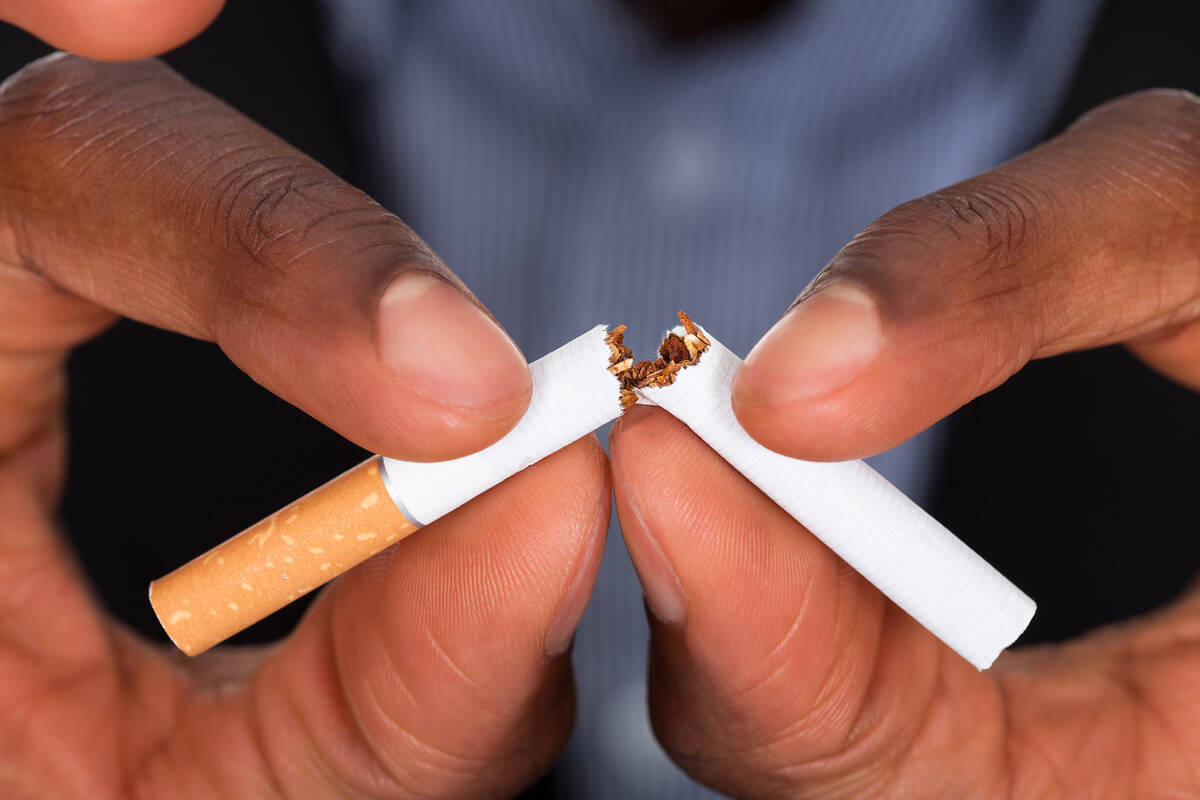You are ‘here’: A smoker’s guide to quitting smoking
When you’re at the mall or on a hike, there’s usually a map somewhere with an “X” that says, “You are here.” If you’re a smoker, you may be at the point where you want to stop, but need a guide for how to get from the “here” of smoking to the “there” of not smoking.
Here’s how to get started on your smoke-free journey:
Add up the costs
Smoking takes a toll on your body, the people around you and your wallet:
Smoking puts you at higher risk for many health conditions, including cancer, cardiovascular disease and chronic obstructive pulmonary disease. It also can lower your life expectancy.
People around you — loved ones, friends, co-workers — can be affected by secondhand smoke.
Do the math. A pack of cigarettes costs about $12. One pack a day times 30 is $360 per month. Smoking also costs you time — time away from your work, family and activities while you take a smoke break.
E-cigarettes have similar physical and financial costs, although the health risks aren’t fully understood since they’re relatively new. Plus, these products aren’t FDA-approved, so there’s no regulation of what’s in them.
Know when you’re ready
Why is it so hard to quit? Nicotine stimulates the reward pathway in the brain, releasing dopamine, which feels good. Over time, you begin to crave the feelings you get from nicotine, and it begins to feel normal. When your body doesn’t have nicotine, it goes into withdrawal.
When you reach the point when the harmful effects outweigh what you gain from smoking and recognize nicotine’s control over your day-to-day life, you’re ready. But the decision has to be yours. It’s a commitment you’re making to yourself. You may have tried to quit before and failed, but you may have made the effort for others, not yourself.
Make a quit plan
Becoming smoke-free is a process. Developing a quit plan can help you prepare and follow through with your decision to stop.
Here are some elements of a successful quit plan:
Commit to quitting. Tell your family, friends, loved ones and those who will be part of your support system.
Choose a date. Be realistic and give yourself some time to get your quit plan in place.
Form a support system. You might want to find someone to quit with you, join a social media or online support group, or seek counseling to help you cope with triggers, withdrawal and emotional challenges.
Know your triggers. Maybe it’s driving or doing a particular activity or stress. Think about how you’ll manage your triggers or avoid them entirely.
Consider cravings. Brainstorm how you’ll manage cravings and address withdrawal symptoms. Have healthy snacks on hand, practice mindfulness, go for a walk or text a support person.
Think about helpful aids. These could be nicotine replacement therapy, such as patches, gum, lozenges or an inhaler, or medication assistance with bupropion or varenicline.
Work through discouragement
When people are trying to quit smoking, if they slip up, they tend to think the worst: “I’m a failure. I’ve blown it.” Those thoughts can drive anxiety, which may cause you to revert to your go-to coping technique: smoking.
But if you have a cigarette or vape, all is not lost:
Be kind to yourself. This is hard. Fewer than 1 in 10 adults successfully quit smoking each year. However, over time, 60 percent of those who try to quit — usually more than once — are successful.
Reset and restart. Tomorrow really is another day.
Review your quit plan. You may need to adjust it and consider what other tools you need in your toolbox.
Check in with your support system.
Remember, there isn’t just one path to your goal, and you have lots of options to help you succeed.
More strategies for quitting
Smoking is the leading cause of preventable death in the U.S., and a listed risk factor for numerous diseases.
"I think the reasons for quitting are primarily to avoid the adverse health effects, live longer and live better," says Dr. J. Taylor Hays, director of the Mayo Clinic Nicotine Dependence Center.
The addictive nature of smoking can be traced to nicotine, a chemical that alternates between stimulant and depressant. Hays says reducing cravings requires a combined approach of behavioral and medication therapy.
"It's generally the same for all addictions, that we want to change the way people think and the way they behave surrounding the use of the substance," Hays says.
Avoiding triggers, trying exercise and relaxation techniques, and leaning on a support system are just a few tips to consider when quitting. The results can reduce stress and improve overall health.
"Even though people use smoking as a stress reliever, it probably creates more stress," Hays says. "We know that people who quit have a significant reduction in psychological distress."
Alex Osiadacz Mayo Clinic News Network













